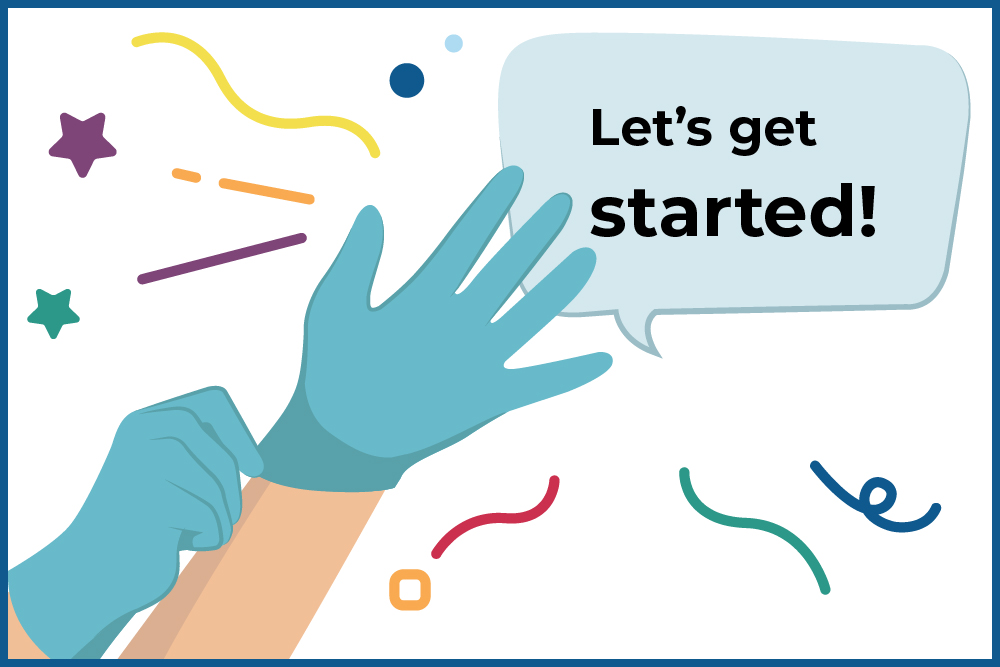
As a healthcare worker, the concept of infection control is probably not new to you. However, infection control training has often focused on the “What” and not the “Why.” In this module, you will learn about the primary goals of infection control in general, and why it is so important in long-term care facilities. You will have a chance to test your infection control knowledge by helping Susana, a CNA at a long-term care facility, take the correct steps to control infection during her shift.
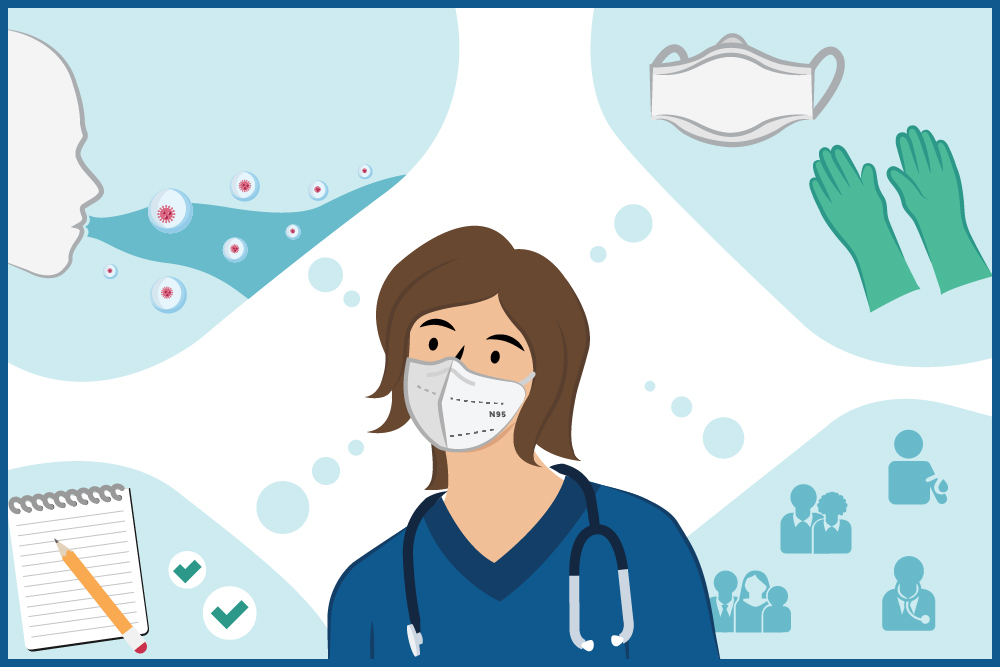
Understanding how germs spread and how to prevent them from spreading is key to infection control. In this module, you will learn how germs spread from surfaces to people and why keeping your hands and the environment clean are key to infection control. You have a chance to help Susana, a CNA at a long-term care facility, take the correct steps to prevent infection as she moves from room to room checking vitals.
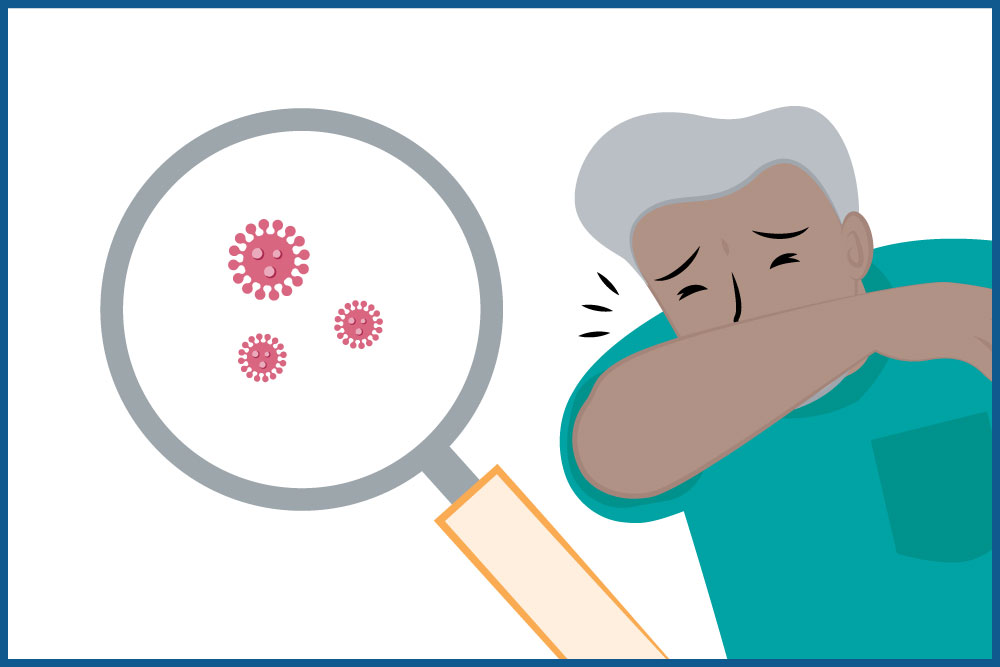
Many of the infection control actions we need to take in healthcare are steps to keep people from breathing in each other’s respiratory droplets or picking them up on their hands. In this module, we will learn about respiratory droplets, what they are, and how they spread and why it is important to keep them out of the air and off surfaces. You will help Alex, who works in environmental services at a long-term care facility, take the necessary steps to keep respiratory droplets off of surfaces and away from people.
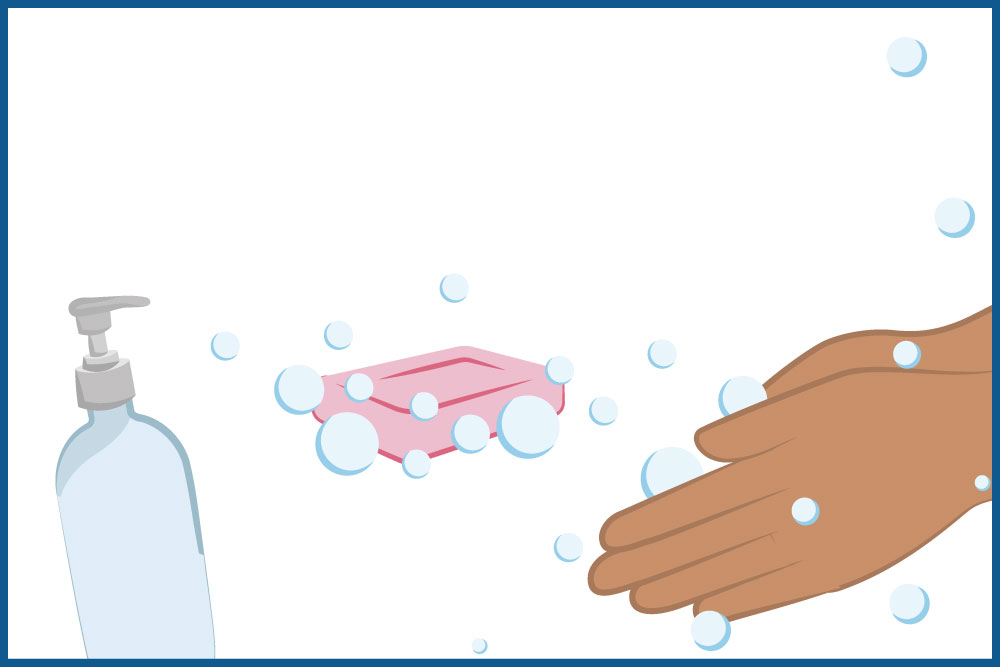
Hand hygiene — or “cleaning your hands” — is not a new topic for people who work in healthcare, but in this module, we will take a closer look at why hand hygiene is so important and the steps you can take to keep germs off your hands and away from people. Test your hand hygiene knowledge by helping Susana, a CNA at a long-term care facility, decide when — and how — to clean her hands.
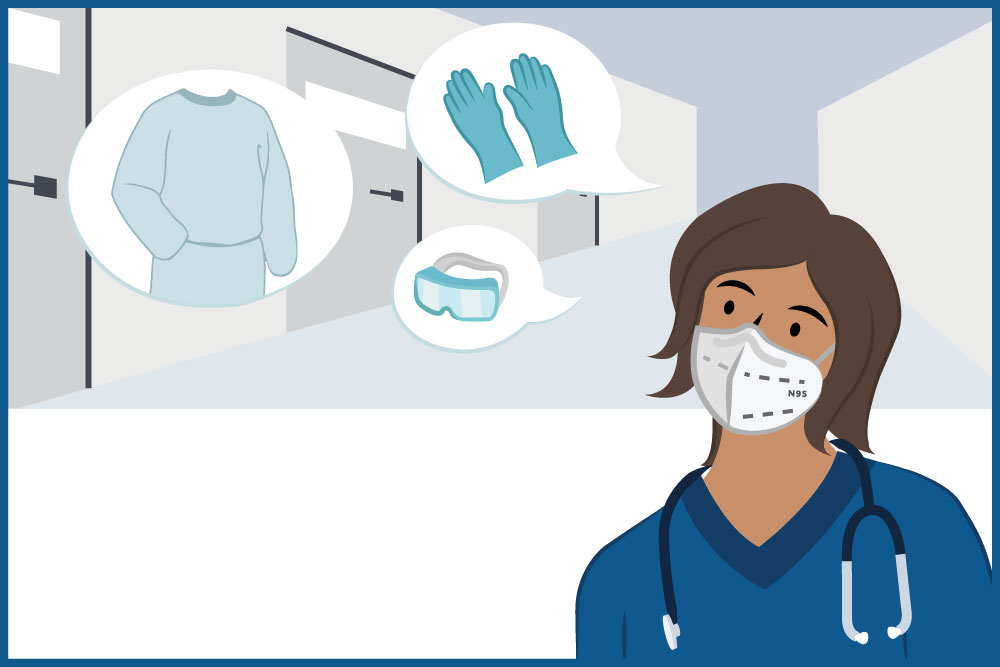
Personal Protective Equipment, or PPE, is an extremely important tool for preventing the spread of infection. However, PPE does not have a mind of its own, so it relies on you to know when and how to use it. In this module, we learn how PPE protects you and others from infection when used correctly. You will help Susana, a CNA at a long-term care facility, follow the proper steps to put on and take off her PPE.
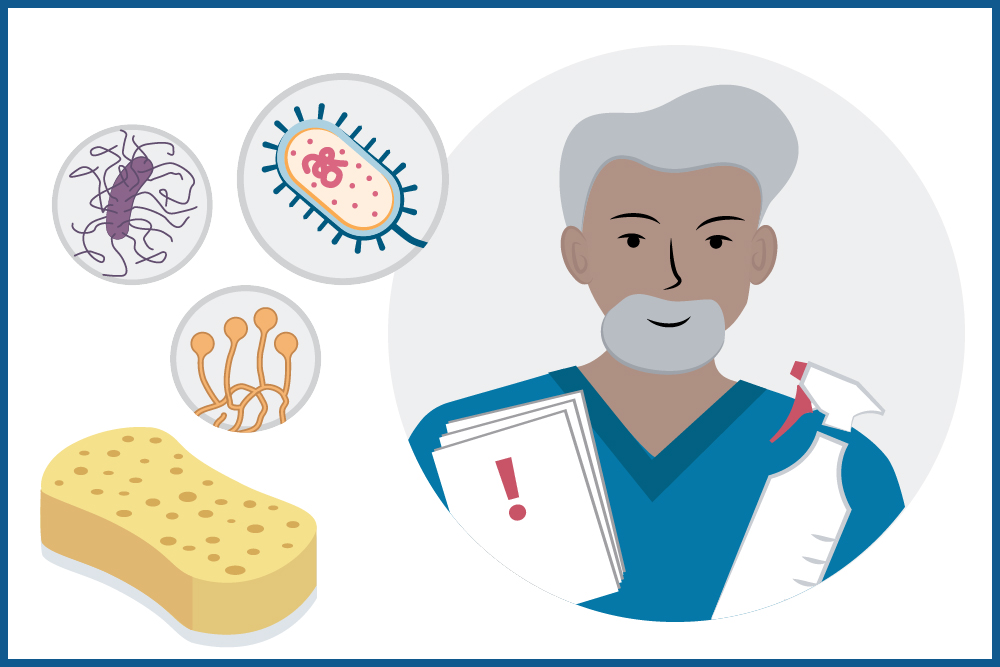
Cleaning and disinfection are often talked about together; however, they serve two different purposes. In this module, we will learn about proper cleaning and disinfection procedures by helping Alex, who works in environmental services at a long-term care facility, clean and disinfect a resident’s room
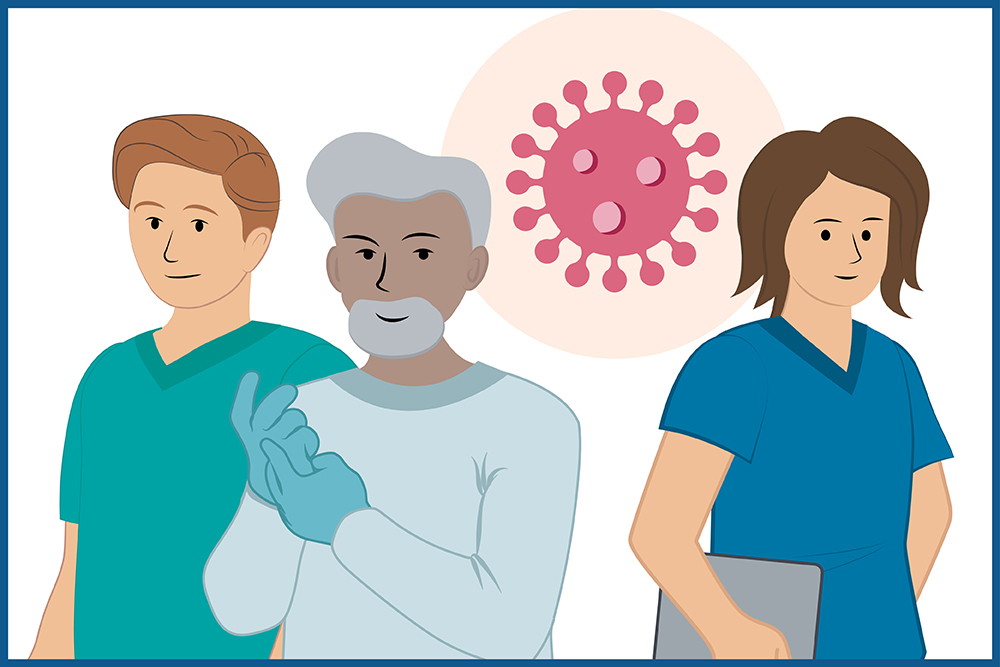
This module is not part of the six-module continuing education series. A CE certificate for .5 contact hours is available for this individual module once it has been completed.
Enhanced Barrier Precautions, or EBP, is an important infection prevention practice that can slow the spread of drug-resistant germs. These germs are commonly found in nursing homes, spread easily and are difficult to treat. In this module, we explore why Enhanced Barrier Precautions are so important in healthcare settings and learn when and how Enhanced Barrier Precautions should be used. You will help Matthew, a CNA at a nursing home, properly implement Enhanced Barrier Precautions to keep himself and his residents safe.
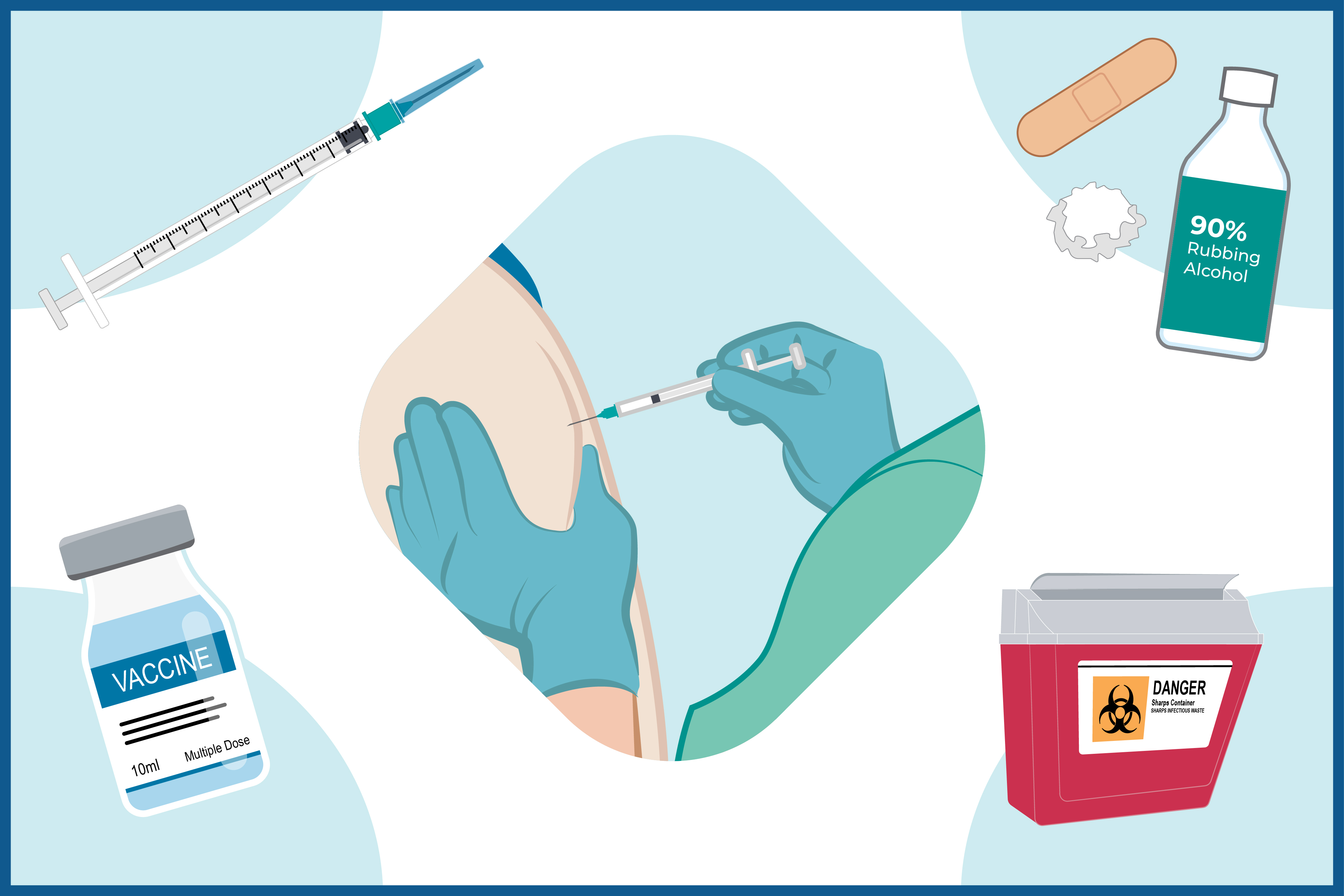
This module is not part of the six-module continuing education series. A CE certificate for .5 contact hours is available for this individual module once it has been completed.
Injection safety practices are critical to the health of both patients and healthcare professionals. In this module, we learn about the precautions that help prevent the spread of infectious bloodborne pathogens in healthcare settings. Then, we identify the key steps that make up safe infection control practices. You will help Emilia, an LPN at a long-term care facility, use these practices to safely administer flu vaccinations for her patients.

We offer two continuing education certificates for completing modules 1-6 of Project Firstline Washington. A continuing education certificate for two DSHS credit hours is available for long-term care workers in Washington State. A certificate for two CNE contact hours is also available. You must complete and pass modules 1-6 to receive either certificate.